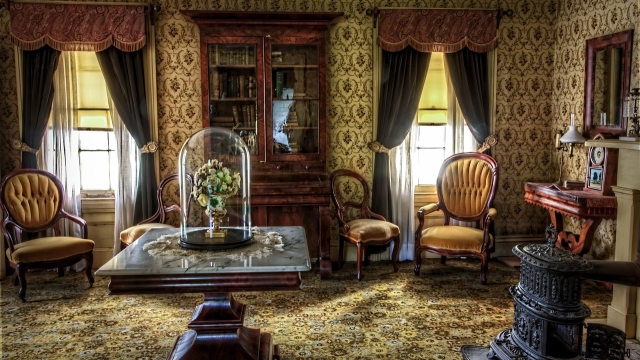
Home is not just a place; it is a reflection of who we are and how we choose to live. The way we furnish our spaces can profoundly impact our mood, lifestyle, and the overall ambiance of our lives. Home furnishing encompasses far more than simply filling a room with furniture. It is an art form that involves curating a collection of pieces that harmoniously blend together to create a welcoming and functional environment.
Every choice, from the color palette to the types of materials used, contributes to the aesthetic and emotional feel of a home. Understanding the principles of home furnishing allows you to transform even the simplest of spaces into a sanctuary that resonates with your personality. Whether you crave modern minimalism, rustic charm, or eclectic vibrance, mastering the art of home furnishing will empower you to create a space that is uniquely yours.
Choosing the Right Furniture
Choosing the right furniture is essential for creating a comfortable and inviting home. Begin by assessing your space and determining the purpose of each room. Consider the layout, size, and natural light available. Take measurements to ensure that the furniture you select fits well without overcrowding the area. By understanding how you plan to use the space, you can make informed decisions that enhance functionality and flow.
Next, think about your personal style and the overall aesthetic you want to achieve. Furniture comes in a wide range of styles, from modern and minimalistic to traditional and eclectic. Look for pieces that resonate with your taste and complement each other. This can include coordinating colors, textures, and materials. Staying true to your style helps to create a cohesive look throughout your home.
Lastly, prioritize quality and durability when selecting furniture. Investing in well-made pieces can save you money in the long run, as they are likely to withstand wear and tear. Look for furniture constructed from solid materials with sturdy hardware. Additionally, consider the comfort of the pieces, especially for items like sofas and chairs that will see frequent use. Making thoughtful choices in these areas will contribute to a warm and inviting home environment.
Color and Texture Combinations
The interplay of color and texture is essential in creating a harmonious home environment. By thoughtfully selecting color palettes that complement one another, you can establish a mood and theme throughout your space. Soft pastels evoke tranquility, while vibrant hues can energize a room. Pairing colors with different textures, such as glossy surfaces against matte finishes, adds depth and interest, making the overall aesthetic more dynamic.
Incorporating various materials can elevate the visual appeal of your furnishings. For instance, combining natural textures like wood and stone with softer fabrics like cotton or wool can create a balanced look that feels both inviting and stylish. Layering textures not only enhances the tactile experience but also allows you to play with contrasts, such as a plush velvet sofa against a rugged jute rug, enriching the overall design of the room.
Finally, consider how lighting affects color and texture in your home furnishing choices. Natural and artificial light can alter the perception of colors and textures throughout the day. Warm light can highlight the richness of bold colors, while cooler tones can emphasize subtle textures. To fully realize your design vision, experiment with different lighting options to see how they interact with your chosen colors and textures, ensuring an inviting and cohesive environment.
Maximizing Space Efficiency
When it comes to home furnishing, maximizing space efficiency is key, especially in smaller areas. Utilizing multi-functional furniture is a strategic approach, as pieces that serve multiple purposes can help declutter your environment while providing essential functionality. For instance, a sofa bed or an ottoman with storage capabilities can transform a room, allowing for flexibility without sacrificing style.
Custom Cabinets
Another effective tactic is to optimize vertical space. Shelving units, wall-mounted cabinets, and tall bookcases draw the eye upward and create additional storage options without consuming precious floor space. By incorporating these vertical designs, you can keep your essentials organized and create a perception of roominess. This approach not only enhances the efficiency of your home but also adds an artistic element to your decor.
Lastly, consider the layout of your furniture to promote an open flow. Arranging pieces in a way that encourages movement minimizes cramped feelings and helps small spaces feel larger. Avoid overcrowding by leaving ample space between items, allowing for easy navigation. Thoughtful positioning and selection of furnishings can dramatically transform your living area, creating a comfortable and inviting atmosphere.
Personalizing Your Decor
Creating a space that truly reflects your personality is an essential aspect of home furnishing. Every piece of decor you choose tells a story and expresses who you are. Start by selecting colors and patterns that resonate with you. Whether you prefer bold, vibrant hues or soft, muted tones, your choices set the foundation for your environment. Incorporating artwork or photographs that hold personal significance can add layers of meaning and make your space feel more inviting.
Another key element to personalizing your decor is mixing styles. Combining vintage finds with modern furnishings can create a unique aesthetic that feels authentically yours. Explore flea markets or thrift stores for pieces that catch your eye. These items not only add character but also provide an excellent conversation starter. Pay attention to textures and materials, as they can significantly enhance the overall feel of your home. Soft textiles, natural wood, and metallic accents can bring warmth and depth to your rooms.
Lastly, consider the functionality of your space while personalizing your decor. Your home should be a reflection of your lifestyle, so think about how you use each room. If you love entertaining, create inviting seating arrangements and add decor that fosters conversation. If you’re a bibliophile, curate a reading nook with your favorite books and comfortable seating. Personalizing your decor means making intentional choices that both inspire you and accommodate your daily life, making your home a true sanctuary.


